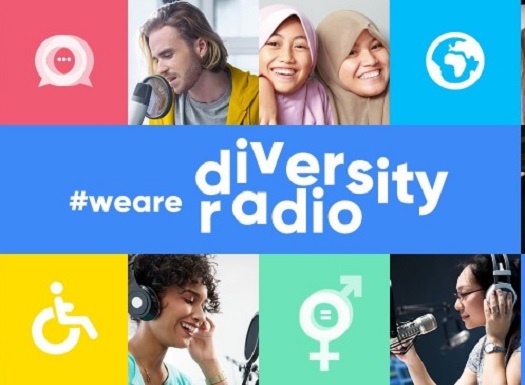This year on World Radio Day (WRD), UNESCO calls on radio stations to uphold diversity, both in their newsroom and on the airwaves.
Now in its ninth year, WRD is an annual celebration of radio as a medium which raises awareness about the importance of radio and strengthens the networking among broadcasters.
Hosted by UNESCO, it was first celebrated in 2012, following its declaration by the UNESCO General Conference.
Radio is a powerful medium for celebrating humanity in all its diversity and constitutes a platform for democratic discourse. At the global level, radio remains the most widely consumed medium. This unique ability to reach out the widest audience means radio can shape a society’s experience of diversity, stand as an arena for all voices to speak out, be represented and heard. Radio stations should serve diverse communities, offering a wide variety of programs, viewpoints and content, and reflect the diversity of audiences in their organizations and operations.
This edition of WRD is divided into three main sub-themes:
Advocating for pluralism in radio, including a mix of public, private and community broadcasters;
Encouraging representation in the newsroom, with teams comprised of diverse society groups;
Promoting a diversity of editorial content and programme types reflecting the variety of the audiences.
Diversity of voices and opinions in radio relies first on the degree of media concentration and the coexistence of different types of stations with a mix of public, private and community broadcasters. The development of policy environments conducive to transparency and diversity of media ownership is the keystone to a pluralistic, inclusive and democratic radio sector. Technological advances are also participating to diversify the radio sector – for example with Digital Audio Broadcasting (DAB): a technology used by radio stations to broadcast digitally. Through DAB radio, the choice of stations available to listeners is dramatically increased with more stations being able to broadcast in the same areas on less frequency space than necessary for FM and AM radio. DAB radio also offer additional information and features, such as the display of programme and song played, or the ability to pause and even record live broadcast, further enriching the radio experience.
Editorial teams are usually comprised by staff from majority groups. Through equal opportunity and fair treatment policies, which prevent discrimination based on factors such as gender, origin, sexual orientation, religion, age, social and socio-economic backgrounds and/or political party, radio stations could gain multi-cultural teams that bring along different perspectives on issues, opinions and stories, thus enhancing their credibility vis-à-vis listeners. A diverse and representative radio workforce is not only important for countering discrimination and ensuring gender representation, it is crucial for creativity and relevance of content. It thus safeguards editorial independence.
UNESCO invites all radio stations and supporting organisations to join in for World Radio Day 2020. To submit your own event, go here.

